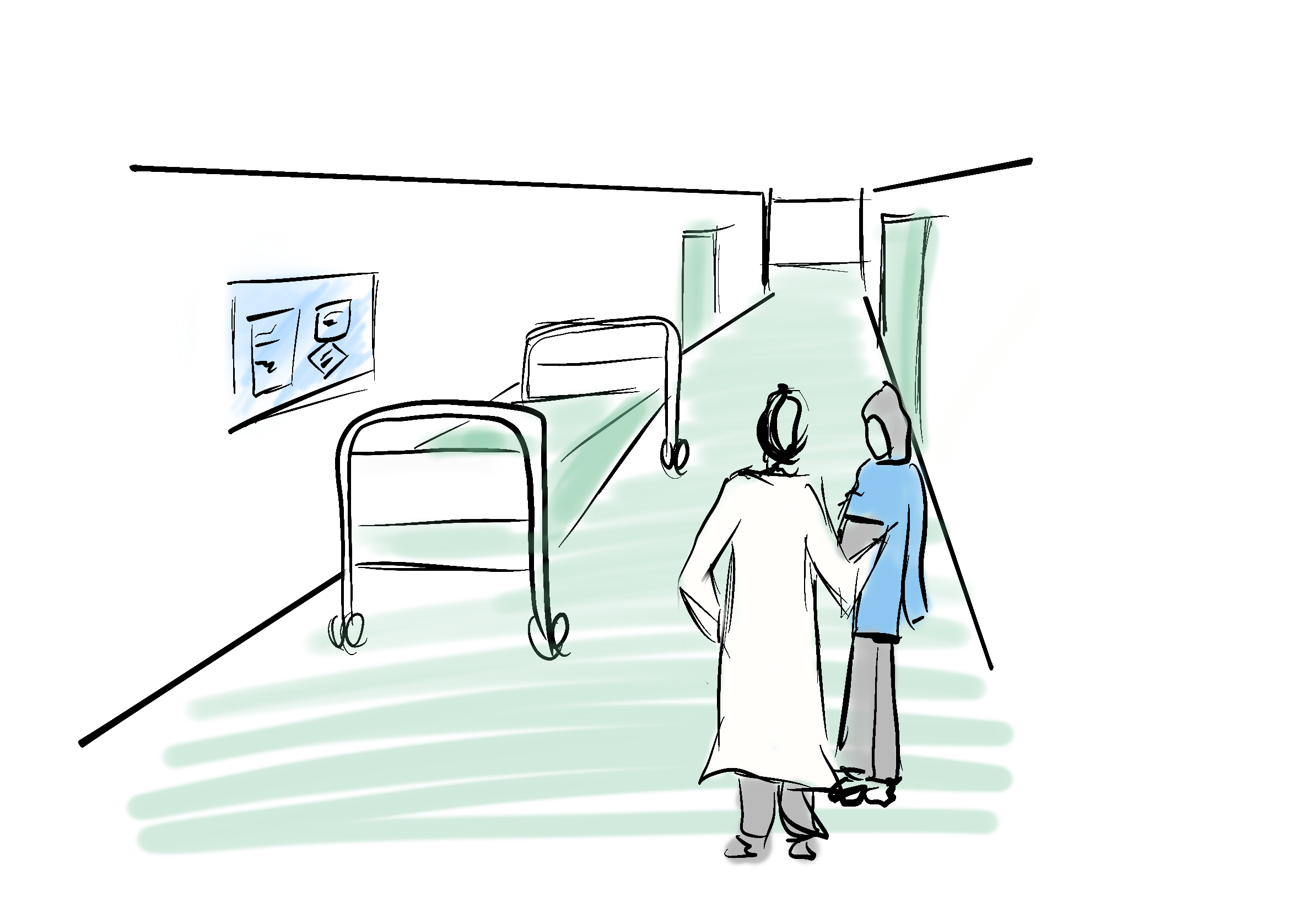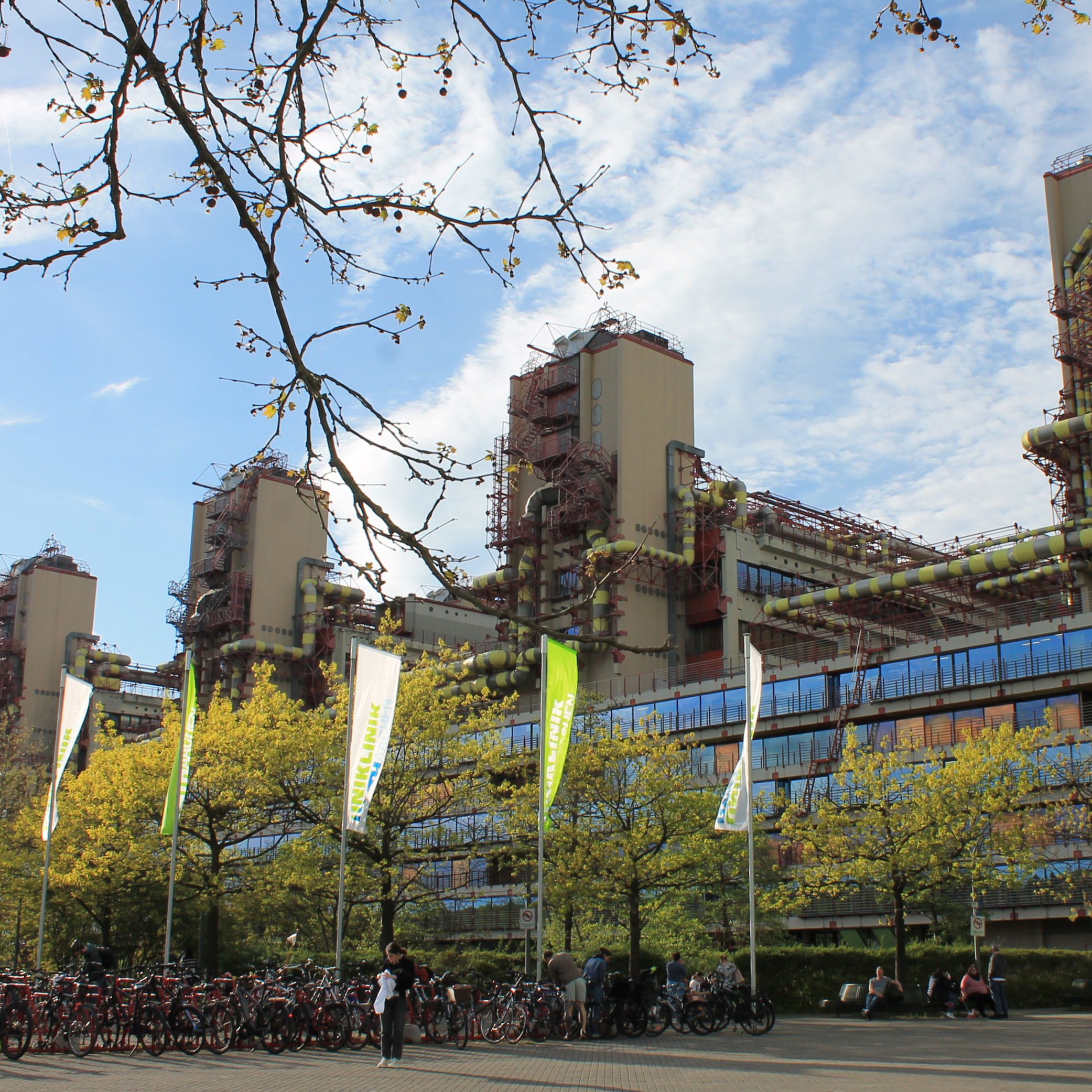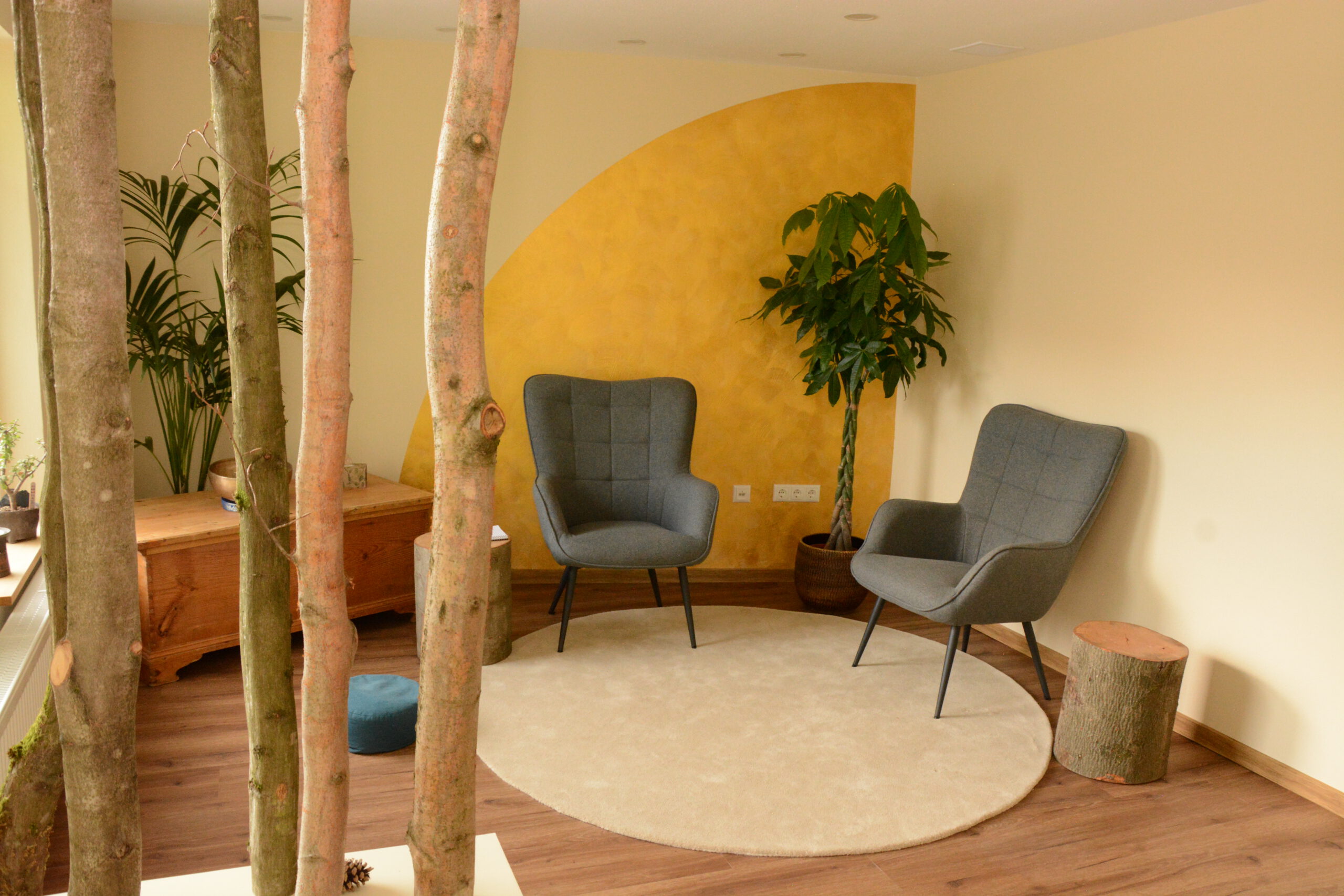Project responsibility: Dr. Rehn-Groenendijk
Wie kann Design eine aktiveren und mündigerne Patient:innenrolle fördern? Dieser Frage wird im Rahmen von mehreren Klinik-Workshops und Partizipationsformaten im öffentlichen Raum nachgegangen. Das Projekt wird vom World Design Capital 2026 gefördert.
Project responsibility: Dr. Müller & Dr. Rehn-Groenendijk
An evidence-based spatial concept was developed in cooperation with the 'Forschungsgruppe Innovative Produkte und Systeme' to set up a general medical practice at RWTH Aachen University Hospital (Campuspraxis MVZ Aachen gGmbH), taking telemedicine services into account.
Kooperationspartner: Studio OLE – Julio Gil Fariña
In a competition, the city of Stuttgart, Germany, was looking for innovative ideas for the vacant space adjacent to the new main railway station. In collaboration with Julio Gil Fariña from OLE (Office for Local Experiences), the Designinstitut für Gesunde Gestaltung submitted an entry: a place that combines human and planetary health.
Project responsibility: Dr. Helena Müller & Dr. Jonas Rehn-Groenendijk
Für eine Praxis für gestalttherapeutisches Coaching wurde ein Haupttherapieraum mit multifunktionalem Nebenraum und Erschließungskonzept evidenzbasiert entworfen. Dabei standen vor allem die konkrete psychotherapeutische Arbeitsweise der Therapeutin und damit verbundene Konstrukte wie Selbstwirksamkeitserwartung und Sicherheit im Zentrum der Betrachtung.
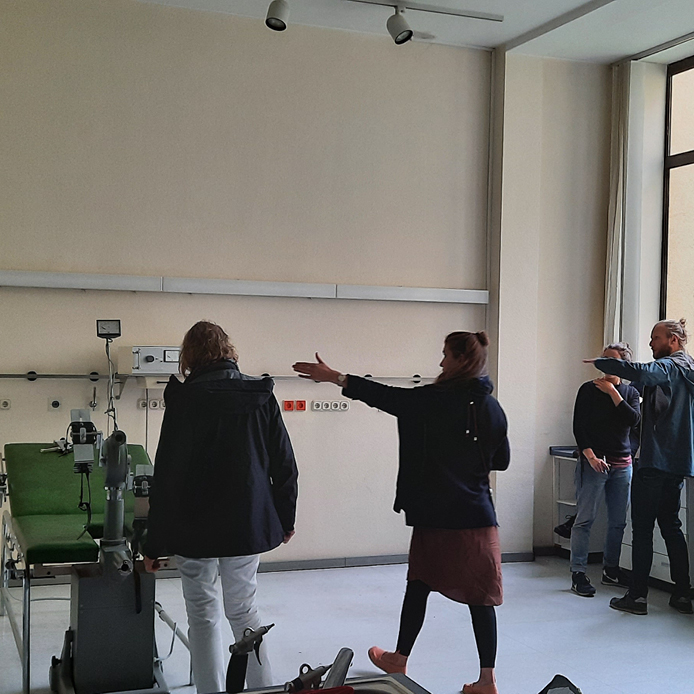
Project responsibility: Dr. Rehn-Groenendijk

Through creative workshops, individual consultations, and conceptual design phases, the project aims to make an evidence-based contribution to the design transformation of a former pulmonary hospital into the "Zukunftsort Waldhof".
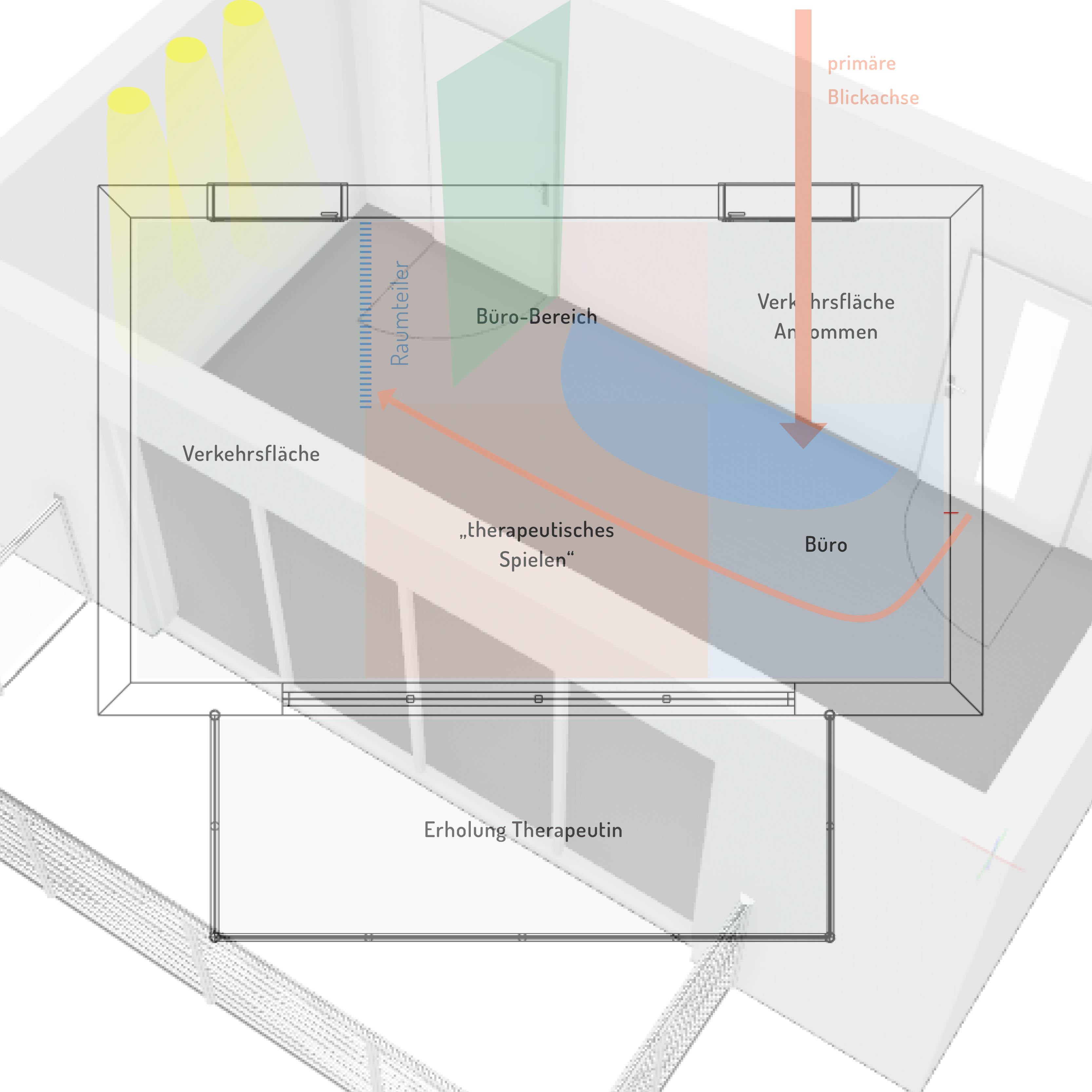
Project responsibility: Dr. Helena Müller
For child and adolescent psychotherapy practice of Hannah Heldt, an explorative analysis and design process was used to assess the diverse therapy-specific spatial requirements. This iterative process resulted in innovative approaches for the efficient use of space and therapy-supporting design of the interior.
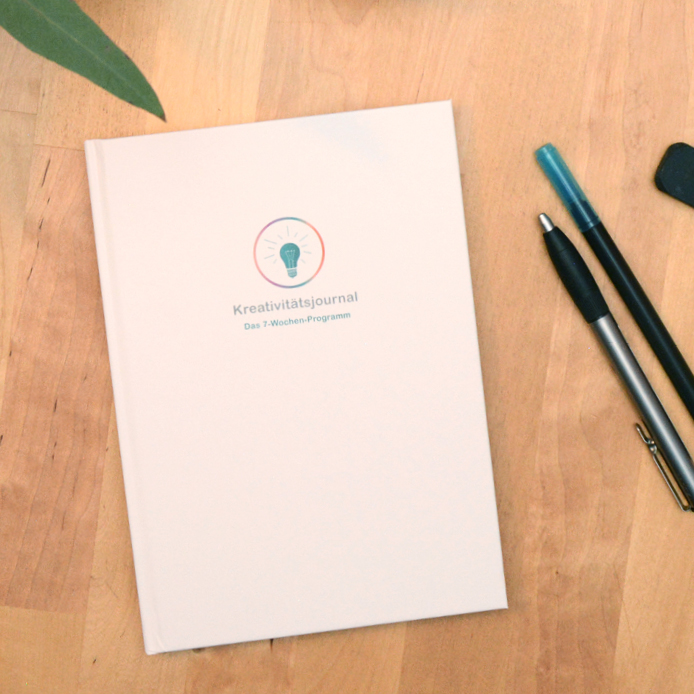
Project responsibility: Dr. Rehn-Groenendijk
Creativity can be seen as an important modulator of health-promoting lifestyles. It allows new solutions to be found to tricky problems and thus reinforces a sense of control and self-efficacy.
This creative journal was developed and marketed as an explorative design concept. Structured in the form of a 7-week program, it aims to develop creative potential in users through daily exercises and supplementary information and to make it applicable.

